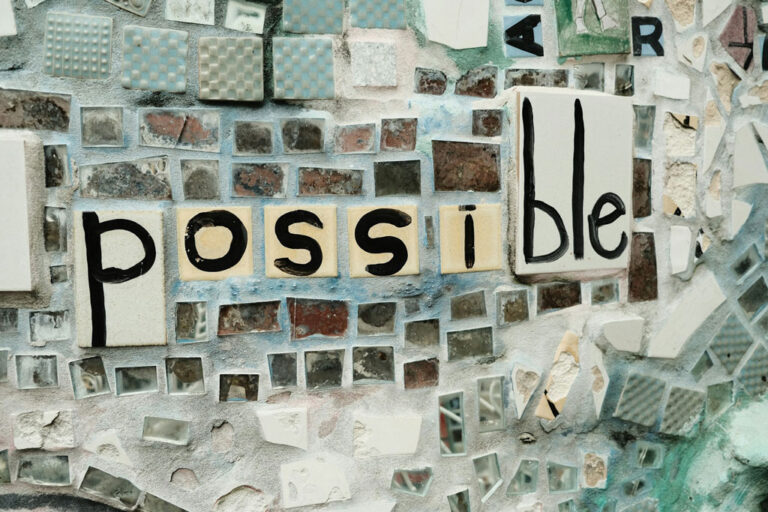The Spatial Scale of ‘We’
 Every day around my town, I see signs of encouragement, most frequently — “We’re All In This Together.” That statement refers to the coronavirus pandemic, suggesting and assuming that we are all equally engaged in and affected by the pandemic. Similar messaging is delivered via emails, websites, and store speakers. Oregon’s public campaign takes the messaging even further, reminding us that “It’s up to you how many people live or die,” staying home ensures that we “don’t accidentally kill someone today.”
Every day around my town, I see signs of encouragement, most frequently — “We’re All In This Together.” That statement refers to the coronavirus pandemic, suggesting and assuming that we are all equally engaged in and affected by the pandemic. Similar messaging is delivered via emails, websites, and store speakers. Oregon’s public campaign takes the messaging even further, reminding us that “It’s up to you how many people live or die,” staying home ensures that we “don’t accidentally kill someone today.”
This messaging is clearly not limited to Oregon. We’re bombarded with fearful and dire characterizations of the force and magnitude of coronavirus. World leaders are asserting that coronavirus is “the worst public health crisis for a generation” (Boris Johnson), “we are at war” (Emmanuel Macron), or labeling themselves as “a wartime president” (Donald Trump).
At war? In his Nobel Peace Prize Acceptance Speech, President Barack Obama summarized the conditions under which war is justified: if it’s a last resort, if force is proportional, and if civilians are spared from harm (i.e. collateral damage). He further reflected that throughout history, the notion of “just war” was rarely observed. Our world leaders are certainly invoking rhetoric of war to muster broad public support for their unprecedented actions in the fight against coronavirus. And, polls seem to show that we support these actions. Therefore, we are obliged to ask ourselves whether our actions are, in fact, just.
The World Health Organization collects and maintains statistics on pandemics, epidemics, endemics, and outbreaks. As only a few examples, in 2018 405,000 people died from malaria (out of 228 million known cases) and 1,500,000 people died from tuberculosis (from 10,000,000 known cases). The United Nations reports that 9,000,000 people die of hunger every year (out of over 820 million people who are chronically hungry). This already calls in question Boris Johnson’s assertion that Covid-19 is “the worst public health crisis for a generation.” But now include lockdown-related collateral damage and the UN predicts that the global coronavirus lockdowns will drive an additional 130 million people to the edge of starvation. The World Health Organization estimates that an additional 1.4 million people will die from tuberculosis as a direct result of the global lockdowns. The impact on other indices of health is dizzying, with surges in suicide, domestic violence, and mental health problems (the United States Centers for Disease Control reported in May that one-third of Americans are experiencing Generalized Anxiety Disorder, with rates higher for women, people of color, and people with less education). Factor-in unprecedented unemployment directly tied to coronavirus lockdowns that is surging across class, race, and gender lines, disproportionately affecting women, people with disabilities, and people of color. They bear the brunt of the crisis while we are protected in lockdown.
Apparently, this is what we accept as collateral damage in this war.
So, why doesn’t the world respond in the same way to malaria, tuberculosis, or starvation as it does to COVID-19? The answer is quite simple. Coronavirus has the audacity to attack wealthy white people. It affects visible people, rich people, important people, even world leaders. Those other maladies are primarily relegated to poor people in poor nations. In response to “the worst public health crisis for a generation,” these affected wealthy people adopted a large-scale extraordinary means in the “war” against coronavirus, while other maladies and the less privileged find funding and assistance dwindling. Lucica Ditiu, executive director of Stop TB Partnership succinctly summarizes the disparity.
“TB has been with us for thousands of years. For 100 years we’ve had only an infant vaccine and we have two or three potential vaccines in the pipeline. We look on in amazement at a disease that is 120 days old and it has 100 vaccine candidates in the pipeline. This is really fucked up.”
Ditiu’s statement illuminates the otherness in we. It illustrates the fluidity of how we define we. As a Geographer, I’m struck most by the sudden collapse of the social and spatial scale that defines the we in the rhetoric “we’re all in this together.” Shrinking the scale of we is demanded by our political leaders and supported by our society. But, usually, we lead very interdependent international-scale lives. Our political, economic, and social systems have created an international civilization that mandates the spatial scale of we to be global.
Or does it?
What happens when the we who are threatened are defined by ever-shrinking social and spatial scales of privilege? In the face of a pandemic, the admission to the world of we who can engage in lockdown is brutally strict. The more people we allow into our we, the less safe we are. It becomes necessary to expand the margins of “other” in our effort to define and protect the we.
We have been told that saving lives is more important than the economy. Whose lives? This new we defined by coronavirus is the very essence of privilege, including only those who have the choice to stay at home. And even among those with housing, it works only for those who remain employed and have a home that is uncrowded, safe, non-violent, clean, warm, and well stocked with food and potable water. Our we excludes any of those who cannot participate in the lockdown. This means that we accept a giant portion of the world’s population being collateral damage in this war against coronavirus.
During Spring 2020, I have watched with distress at how easy it has been for the privileged to re-shape their we to a remarkably small spatial and social scale. I’m further horrified by the acceptance of collateral damage that has been caused by the systematic and intentional re-forming of that we. But, of course, the idea of we is fluid. It always has been. Throughout history, membership in we has been defined by spatial and social boundaries. Coronavirus has just created another boundary defining a we: those who benefit from lockdown and those who are collateral damage from lockdown.
We’re all in this together?
No. We are not.
— Amy Lobben
AAG President
DOI: 10.14433/2017.0074

